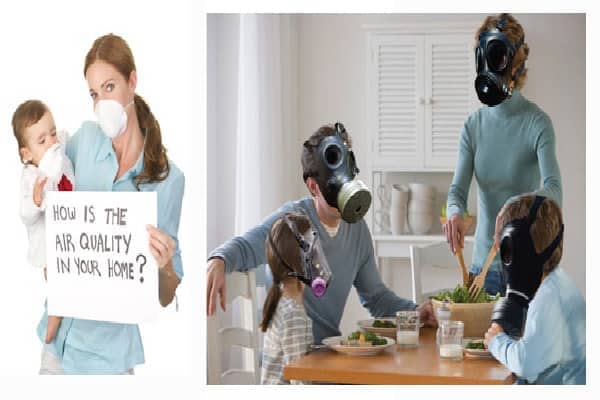How to tell if have poor air quality in your home
When most people think of pollution they think of outside smog, ozone, and haze. What they don’t think about or may not even know, is that indoor air pollution can be worse than outdoor air. Allergies, asthma, and other respiratory problems are linked to poor indoor air quality and indoor air pollutants. Homes today are built tighter with less air exchanges. The good part is it results in a more energy efficient house, while the bad part is it results in poor indoor air quality.
Some signs you have an indoor air quality problem are:
Unpleasant Odors
Dust Buildup
Noticeably stale or stuffy air
Excessive humidity or lack of air movement
Seeing mold or mildew
Damaged flue pipes or chimneys
Dirty or faulty heating, venting
Hot and Cold Spots
Air conditioning systems
Some other signs are health symptoms:
Sneezing or Allergic Reactions
Stuffy nose or sinus issues
Skin Dryness or Irritation
Headaches or Nausea
Inability to Sleep
Coughing or Difficulty Breathing
If you feel noticeably better when you are outside, you might have what is known as sick home syndrome. Sick home syndrome is when a home’s environment is making you sick. The good thing is indoor air quality is something you can control and manage. Here are some ways to improve the air quality in your home.
Eliminate as many toxins as possible
Cleaners, aerosol cans, certain air fresheners, and other household chemicals release toxins into the air. Try to avoid putting toxins into the air. Cigarette smoke and wood burning fires also put harmful toxins into the air. Try to avoid contributing to the problem. That goes for dust and animal dander as well. Cleaning and dusting regularly as well as installing an air purifier can help with this. Opening the windows when you clean will help get rid of allergens, dust particles, and toxins.
Keep a healthy level of humidity
Researchers say between 30-50% relative humidity is the best-case scenario for indoor air. A high level of humidity is bad for indoor air quality and fosters mold, mildew, and rot. Dust mites, insects, pests, and cockroaches all thrive in humid environments. Controlling moisture is a great way to avoid these issues. Installing a dehumidifier will allow you to control the humidity, fresh air ventilation, and air filtration in your home. It can also help protect your home from any damage from excess humidity. Dehumidifiers can also be an effective protection against airborne viruses. Balancing your home’s humidity reduces indoor allergens. In return you could benefit from greater overall health, less stress, better sleep, and a happier family.
Waterproof your basement and crawlspace
Part of controlling moisture is creating a healthy, dry environment below-grade. Make sure you never have standing water, leaks, or puddles in your basement or crawlspace. This moisture will travel upstairs and create the problems we were just mentioning. Mold and mildew don’t stay in one place. If it is present and left unattended it will spread and wreak havoc on the house and your health. Make sure the foundation is free from cracks or gaps. This will let in water and soil gases.
Test for radon
Speaking of soil gases, the number one most harmful soil gas is radon. Radon is a natural occurring gas from decaying uranium in the soil. It is the number two cause of lung cancer and the leading cause for nonsmokers. It has been found in every state and in every soil type. Because it is odorless, tasteless, and invisible the only way to know if you have harmful levels of radon is to test for it. It is very important to test for radon and if you find you have harmful levels of radon gas (if your radon level is 4 picocuries per liter (pci/L) or higher) have a contractor install a radon mitigation system to eliminate the problem.
Circulate
Maintain good fresh air with natural and mechanical air circulation. Like we said before our homes are tighter these days, so we need to make it a point to circulate both with mechanical ventilating systems and by opening a window. Don’t forget to use the exhaust fan while you cook to avoid noxious vapors, grease, and smoke staying into the air.
If you need more education or an estimate to help with your home’s air quality, call BAM basements and Masons of Des Moines. We can help with your crawl space waterproofing and dehumidifier needs. We have different options of dehumidifiers to help with the air quality.


